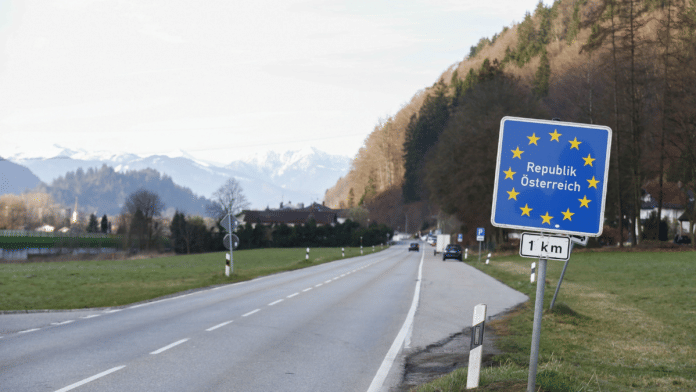Migration normally helps keep the global economy flowing. COVID-19 has mostly put a stop to that.
Hundreds of countries have now implemented coronavirus-related travel restrictions and border shutdowns, creating an unprecedented impact on mobility. COVID-19 also poses a grave threat to the many people who were caught between home and their final destination when it spread – and are now living in crowded refugee camps where the term “social distancing” carries little meaning.
According to one estimate, migrants contribute nearly 10% of global GDP. Now, everyone from a migrant agricultural worker relying on a paycheck in Portugal to a foreign healthcare worker living in Sweden is potentially impacted by a dramatic tightening of borders. Some countries, like Australia, have barred entry to anyone who isn’t a citizen or resident. Others, like the US, have suspended the entry of people from certain places. Some countries have made exemptions for “essential” workers – for Canada, that includes caregivers and seafood processors.
Many people who choose to leave home aren’t headed to guaranteed employment. Instead, they’re fleeing from conflict and poverty. These people often assimilate and contribute to prosperity in their new homes. Large numbers of them are stuck in transit and particularly vulnerable to COVID-19.
Earlier this month, Greek officials quarantined a refugee camp in Ritsona after 20 of its more than 2,000 residents tested positive for COVID-19. (Earlier, a woman who had been living there became the first recorded case of a refugee contracting the infectious disease). Since then, a second refugee camp in Greece has been quarantined after a resident there tested positive, along with a camp in Malta.
It remains unclear when much of the world might once again open up to migrants in a way that could help re-start a flagging global economy. It’s also unclear what the lasting impact of the current state of affairs on migrants might be.
For more context, here are links to more reading courtesy of the World Economic Forum’s Strategic Intelligence platform:
- Aid workers were bracing for a possible outbreak of the coronavirus at a refugee camp with more than 1 million Rohingya Muslims and more than 40 times the average density of Bangladesh. (The Diplomat)
- In Ireland, the government has won praise for introducing a pandemic unemployment payment that covers regular and irregular migrant workers. (IOM)
- Turkey registered its first confirmed COVID-19 case in the midst of a stand-off with the EU over its Syrian refugees. Now, turning a blind eye to the condition of these refugees amid the pandemic is not an option for Turkey or the international community, according to this analysis. (Vox)
- In the UK, social distancing measures mean that many of the most vulnerable migrants are condemned to a form of imprisonment, if not a total disappearance from social life, according to this researcher. (The Conversation)
- Hundreds of thousands of Afghan migrants have been flowing home from hard-hit Iran in recent weeks – without having been tested for COVID-19, according to this report. (The Diplomat)
- Some 1.4 million of Gaza’s 1.9 million residents are registered refugees, and they face a relatively high risk of contagion in one of the most densely populated places in the world, according to this analysis. (The New Humanitarian)
- In the US, undocumented workers are now at risk of missing out on public services meant to help weather the pandemic – even if they’ve been paying taxes for years, according to this report. (The New Yorker)
This article was originally published in the World Economic Forum
Also read: How to lift the coronavirus lockdown? Learn from Austria and Denmark






